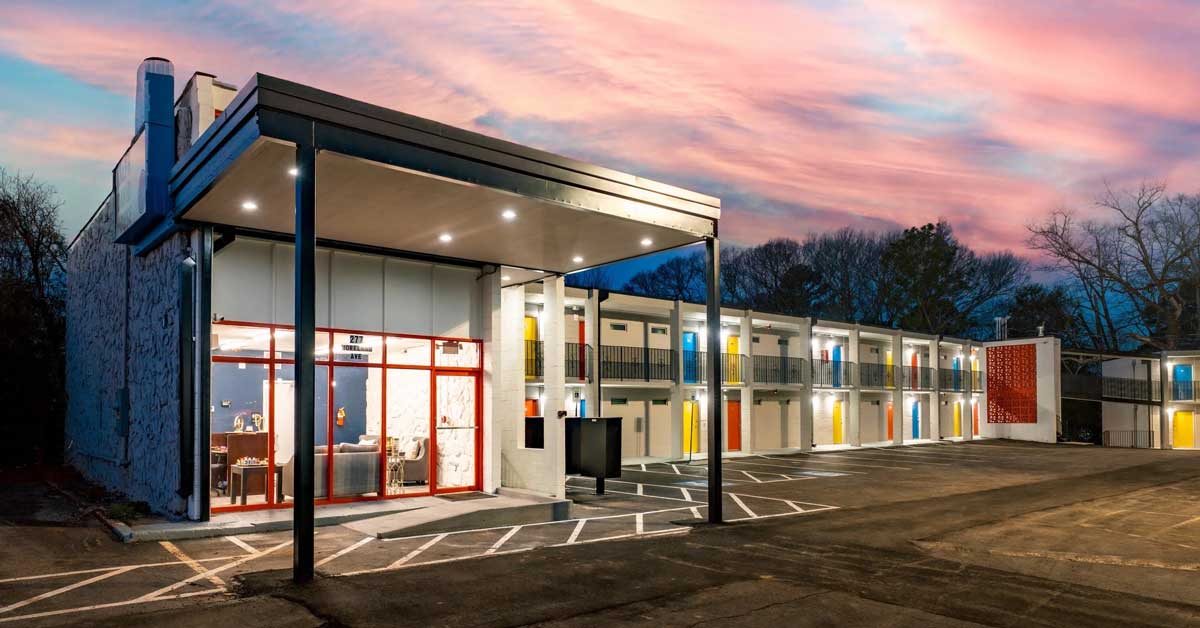The Atlanta Beltline is a 22-mile multi-use trail and transit corridor in the heart of Georgia’s state capital, where city dwellers can enjoy natural trails and public spaces throughout the stretch of land.
But now, the area is working to solve one of the city’s largest issues: A lack of affordable housing.

According to 11 Alive News, the Atlanta Metro Area has lost over 200,000 affordable housing units between 2018 and 2023, leaving the city thousands of units short for low-income renters in need of a place to live.
City officials say the Beltline is part of a larger effort to build more than 5,000 affordable homes by 2030. The group is already 69% of the way to that goal, and a new development is adding to the momentum.
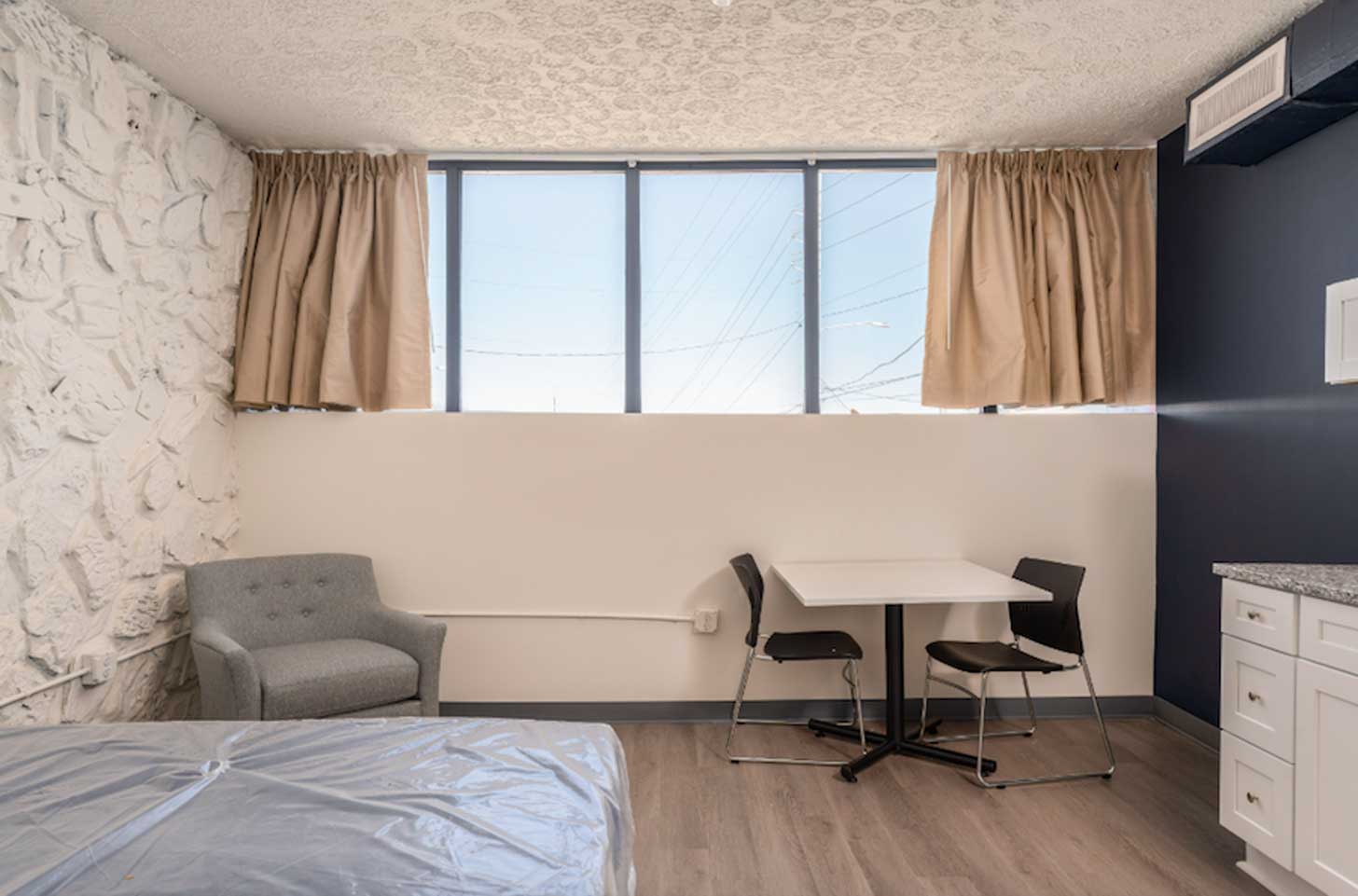
Recently, the city opened its first adaptive reuse development along the Beltline: The Ralph David House.
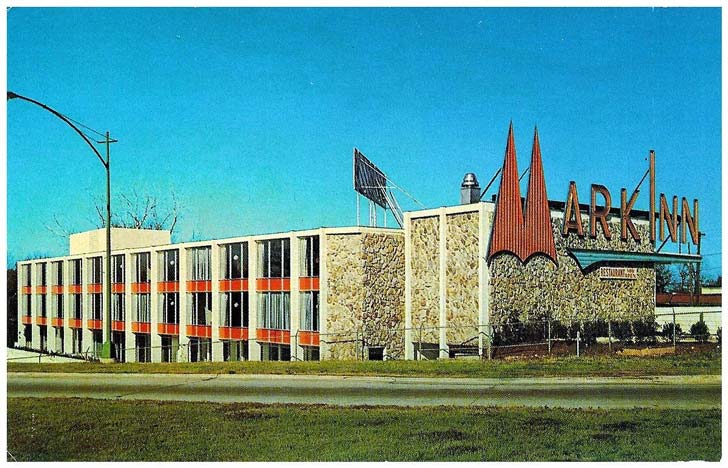
Once a motel in the Reynoldstown neighborhood — built in the 1960s — the space was transformed into 56 modern studio apartments for individuals or families who were previously unhoused.
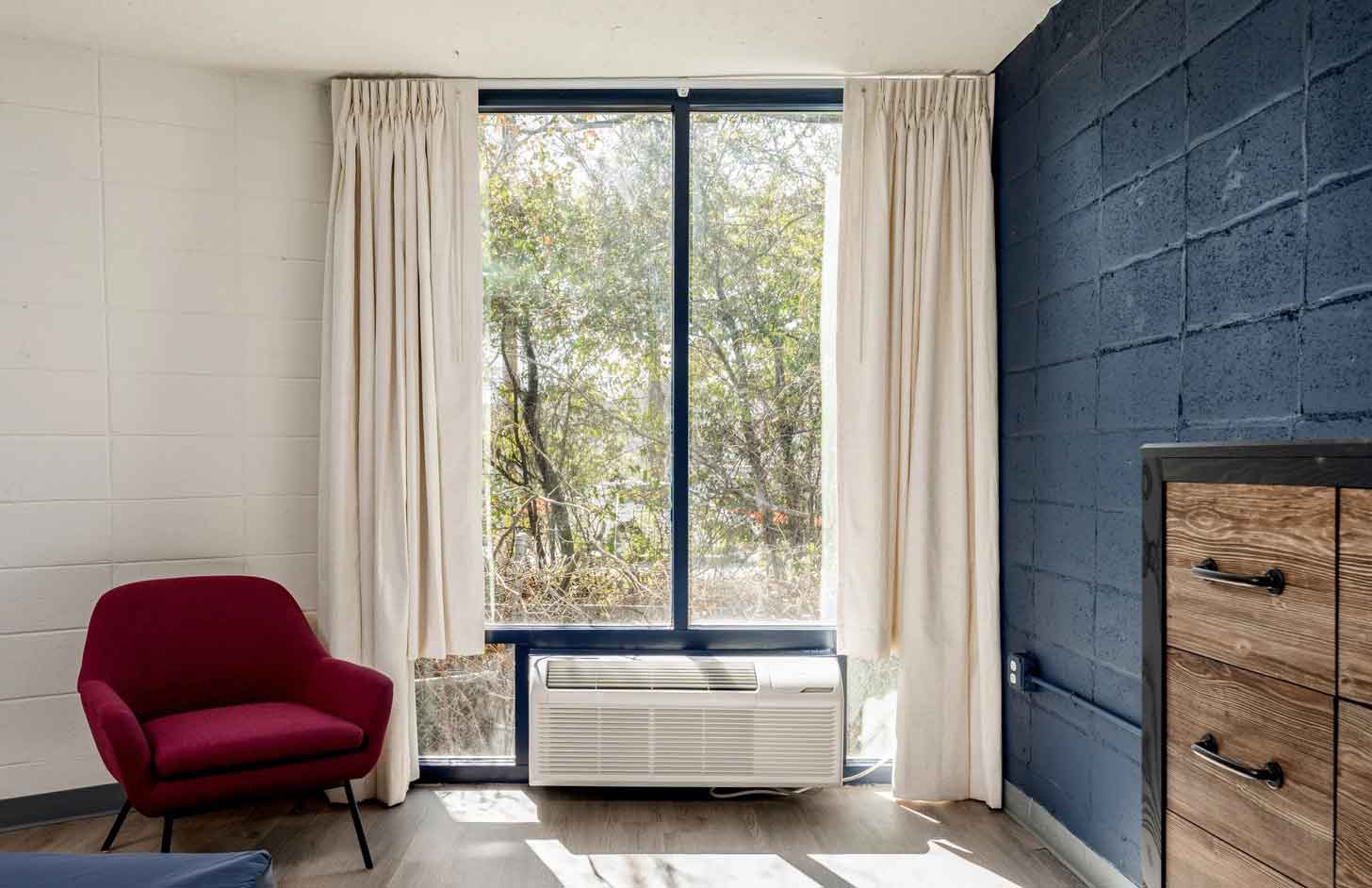
“Once an aging 1960s era [motel] is now a driving community for our city’s most vulnerable residents that need it the most,” Atlanta Mayor Andre Dickens said at the grand opening.
“These two-story buildings have been fully renovated on the inside and reimagined. We delivered affordable housing faster and more efficiently, proving that creative solutions can drive real results.”
The apartments will be reserved for those earning 30% of the area median income or less, and those who were recently homeless.
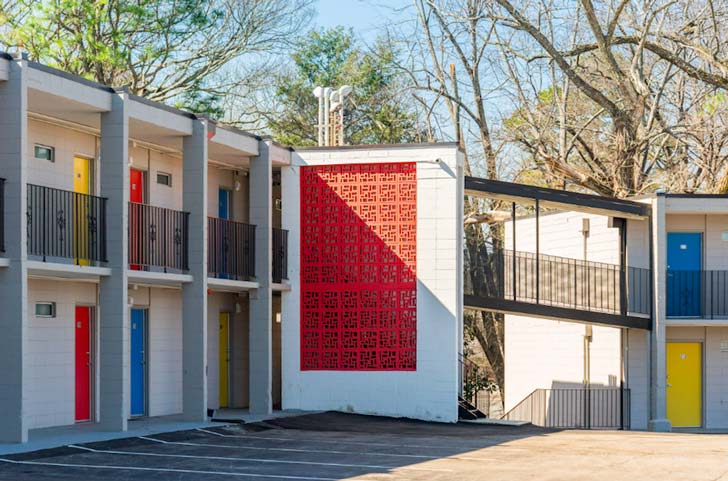
Rents and utility costs combined will be capped at 30% of each tenant’s income, and the development has a social worker’s office on-site.
To develop the site, Atlanta Beltline invested $500,000 in renovating the existing structure. The project also received funding from the Atlanta Affordable Housing Fund and City of Atlanta HOME funds.
Partners for HOME’s HomeFirst program also provided funding, Housing Choice Vouchers from Atlanta Housing, and supportive services for all the individuals housed in the new development.
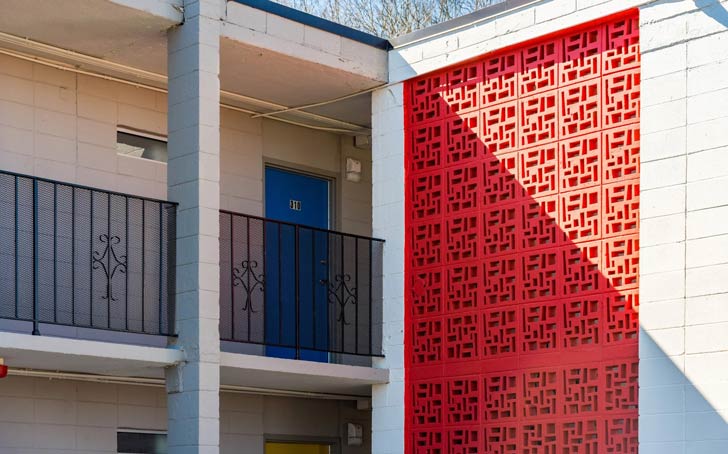
Additionally, the development is named after civil rights icon Ralph David Abernathy, an ordained Baptist minister who was a close friend and mentor of Martin Luther King Jr.
The commitment to social justice and equality in Abernathy’s work provides a throughline for the housing project today, one that will benefit a majority of low-income BIPOC individuals.
“This is the first time the Atlanta Beltline has invested in this kind of project,” the Beltline’s president and CEO, Clyde Higgs, said in a statement.
“We saw this as a catalytic opportunity to continue guiding equitable, inclusive, and sustainable development in Atlanta, which has many historically disinvested neighborhoods.”
You may also like: 'Eyesore' motel transforms into colorful apartments for homeless SoCal families
Header image courtesy of Terminus Design Group
